This exclusive story is brought to you by In Real Life Malaysia – For sharing, please credit us and add a backlink. We value your kind acknowledgement of our editors in sourcing and conducting interviews.
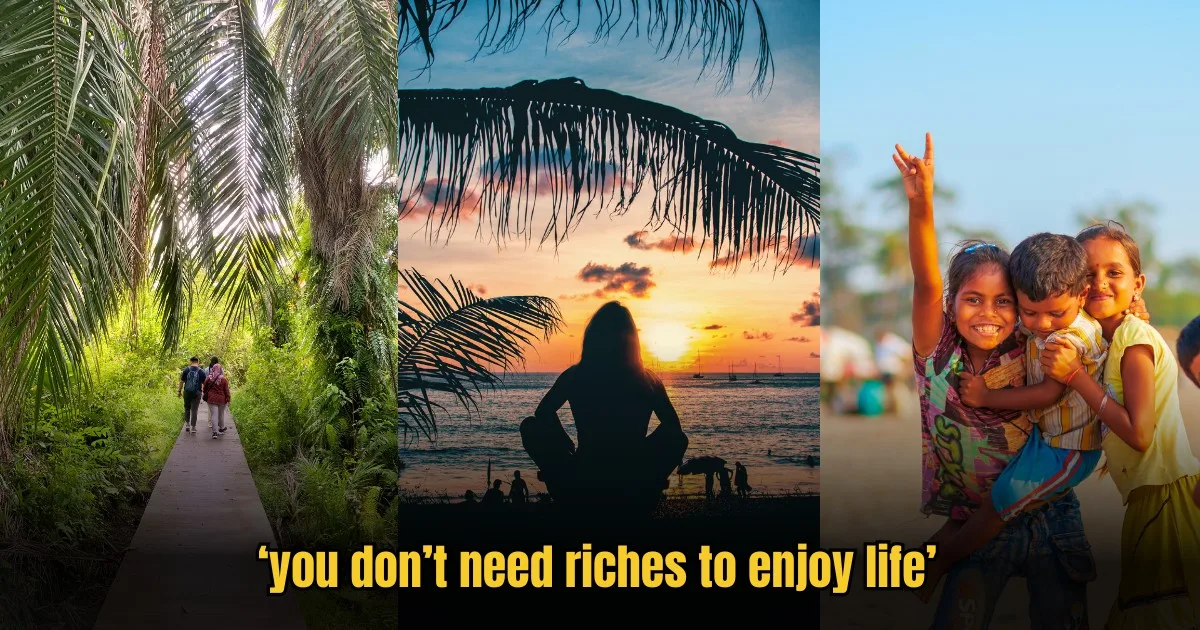
This story is about Farah (*anonymised), a marine biologist who quit her career in KL to work on a remote island in Malaysia.
In 2023, I quit my job to work on an island, and it was the best decision I ever made. Here’s why.
When I graduated in 2016 with a degree in Marine Sciences and a Master’s in Sustainability Science, the job market was terrible. Faced with no job offers in my field of study, I took the first offer in Kuala Lumpur, a corporate job for a global brand.
6 years later, I was making enough money to be comfortable in KL. At this point, usually people would settle down, get married, and have kids.
But I had no interest in that. Instead, every day was exactly the same: I worked a 9-to-7, with weekends reserved for catching up on sleep, meeting friends and doing laundry. I started questioning what I was living for.
While scrolling through LinkedIn, a job opening caught my eye: A project coordinator for a small conservation company based in Sarawak. The company’s primary focus is marine conservation, like coral checks and sustainable waste management.
My heart skipped a beat. All this while, I’d always regretted not being able to use my degree in my line of work.
I realised: If I don’t do it now, then when?
So without a second thought, I applied for the position. Although the pay couldn’t compare to the one I had in KL, I was excited about this new opportunity. I moved out of my apartment in KL, sold most of my possessions, and the rest is history.
Here’s what I do for a living.
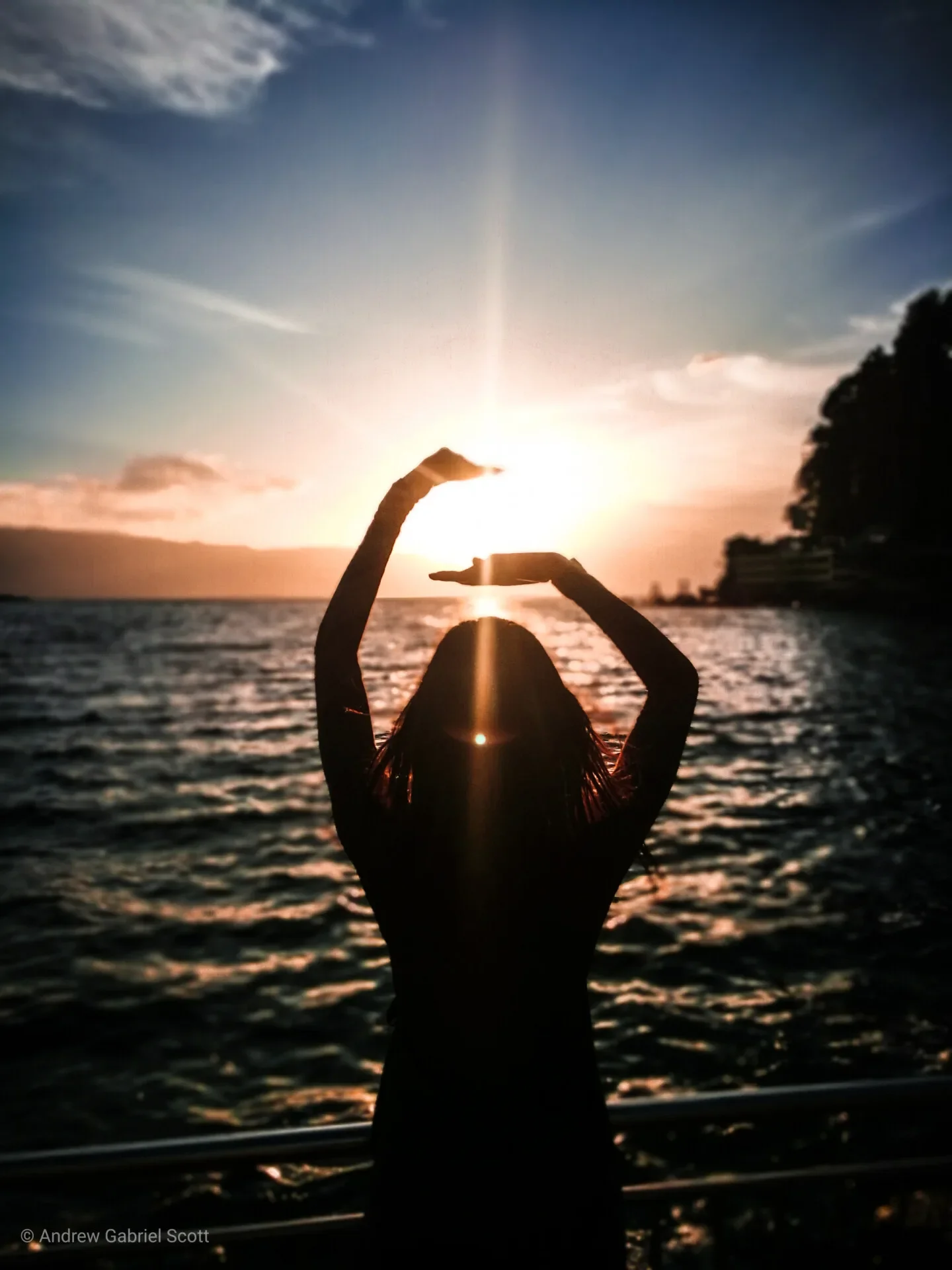
Image credit: andrew gabriel
As a project coordinator, my role involves conservation, sustainable tourism and waste management and everything else in between. This includes making itineraries and plans, and also creating content for the education centre.
When my mother asks me what I do, I tell her I’m like the ‘Ketua Kampung’ (village elder) of Sustainability. I engage a lot with the local community on the island, empowering them with knowledge about risk management, environmentalism, heritage, while providing a holistic view of sustainability.
Part of my job is to conduct workshops, like soap-making, recycling, and education projects.
My colleagues and I are spread out, with some of us on one island, some working remotely, and me, the only staff member on this particular island. When back on the mainland, I prepare the schedule for the next weeks and upcoming months, as we have collaborations with other NGOs.
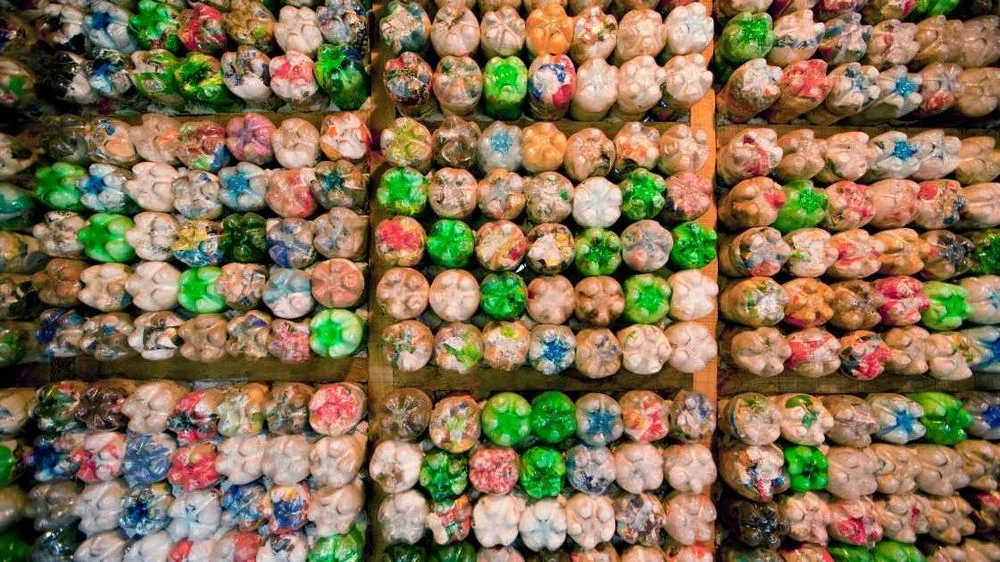
Ecobricks image via housing. Com
Managing waste sustainably is a big issue we’re working on. Our funds are dedicated to making the rubbish waste process better. We’re working on plastic project modules, ecobricks, and educating people about microplastics.
It’s peaceful, but there’s too much trash: On the beaches, roads, everywhere.
There are piles of trash, and it’s not sustainable to bring trash from the island to the mainland as there’s too much here. This is why they should use eco bricks, replacing traditional bricks with plastic ones, and practising upcycling.
Convincing people to change their ways is slow, but we’re making progress. I hope that in a year, this island will be completely plastic-free.
The island feels like another world.
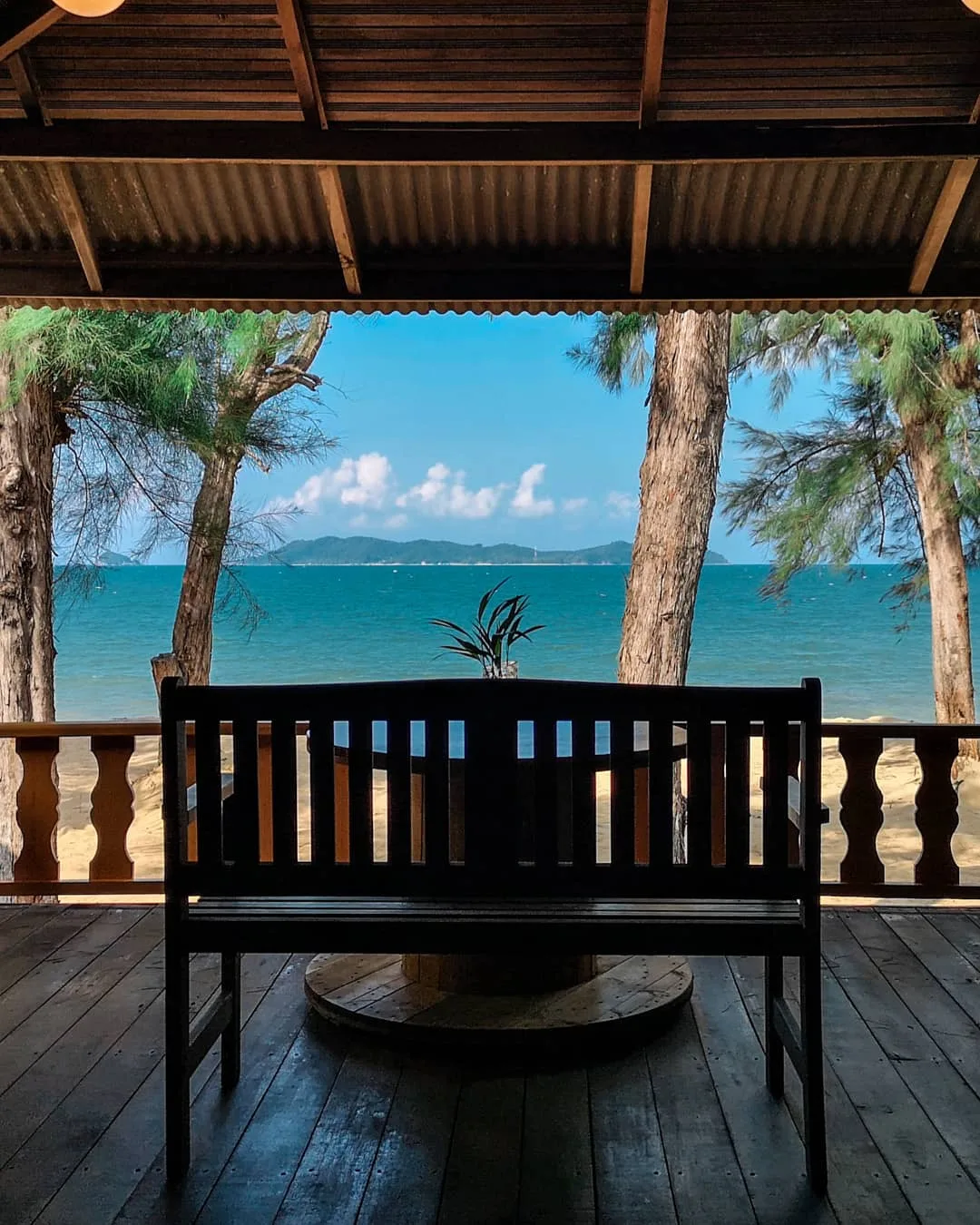
Image credit: andrew gabriel
The island is just 20 minutes from the mainland, but it feels like another world.
It’s very small, only 5-7 square km long; there’s just one long narrow road that follows a narrow stretch of beach. The total population is around 100, including the resort staff.
The house where I live is 100 metres down the road from the resort, and 200 metres further down is the masjid. When you walk out the front door, all you can see is a small jungle with no street lights.
At night, it is completely pitch black.
The only buildings here are the resort, the NGO where I work, the masjid, and some houses where the locals live. At the NGO, we’ve got a ranch, a hall attached to a small office, an organic garden, a compost area, a recycling centre, and an education centre.
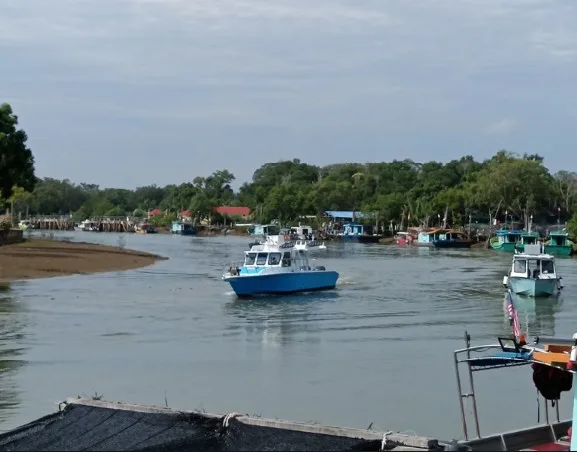
The ferries on the island. Image via farah
Living on this island has taught me a lot about resilience, patience, and the importance of community and conservation.
There are always new challenges to face. On the island, there aren’t enough boatmen for example, so I often take on that role of ferrying people around.
Sometimes there’s no electricity, water, or internet.
Twice a week, the electricity will go out for the whole day. When that happens, I call up the electrician who handles the solar power and bring them to the island on the boat.
If they can’t make it, they will tell me how to turn on the backup power. Same thing goes for water issues throughout the island – when no one else is available, I’m the plumber!
I wouldn’t advise others, especially girls to be in my position. This job is not easy at all, unless they are as passionate and introverted as me.
But thank God that I have a few reliable part-timers who can help me with those things when I’m not on the island. Despite the challenges, I love this job.
I love the ‘lack’ of entertainment
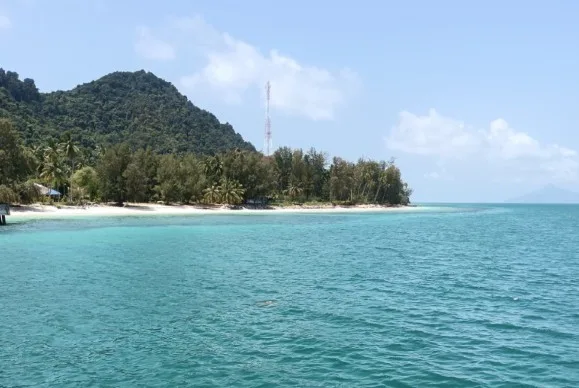
A sea turtle is faintly visible under the waves in the foreground. Image via farah
When I talk to the local community, they often say, “There’s nothing here.” Which is why they visit the mainland every few weeks.
Generally, the island is filled with people who are a safe community with no entertainment at night. There’s only the resort’s cafe for entertainment where people go to hang out.
But for me, I love how special the island’s ecosystem is. The fish, forests, turtles, and plants are amazing. Every time I wait for the ferry or boat, I often see a leatherback or green turtle when I’m leaving the port.
Personally, as an introvert, the lack of entertainment doesn’t bother me. I love reading books on philosophy and spirituality, and if I’m not reading or writing I have around 10 friends who I text almost everyday, or I call my mom and aunt one-to-one. That’s my idea of entertainment!
A difference in mindset.
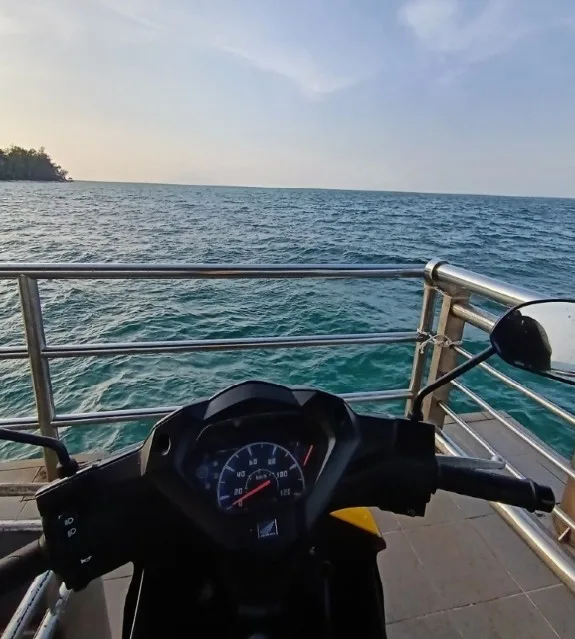
The author on her scooter overlooking the sea. Image via farah
Having lived in KL for 6 years, the biggest difference between here and KL is the mindset. It’s very common in the city for women to be very independent. But here, it’s viewed as odd for a woman to live alone on the island.
When I’m out and about, although I wear a tudung like everyone else, I get noticed a lot, especially because I’m the only girl around and often take visitors on rides on my scooter. They often wonder why I’m walking alone, or going to the mamak alone.
People here expect me to be more traditional, more Malay. They expect me to be conservative, not mix with male colleagues, and not give men rides on my scooter. In the city, people don’t care about these things, but here, they do.
I believe that their intention is good. But at the same time, their mindset clashes with mine.
The pros outweigh the cons.
But these downsides are nothing compared to the upsides. I’m very blessed to be here.
Since I don’t pay for rent, food, or utilities, I save a lot living here. Everything is provided by the company. I barely touch my salary.
I buy food from the mainland and cook for myself – at most, only 20% of my income I use it to splurge on personal care and small luxuries.
Still, it’s not about the money; it’s about the experience.
The best part about living on an island is waking up to a beach all to myself in the morning.
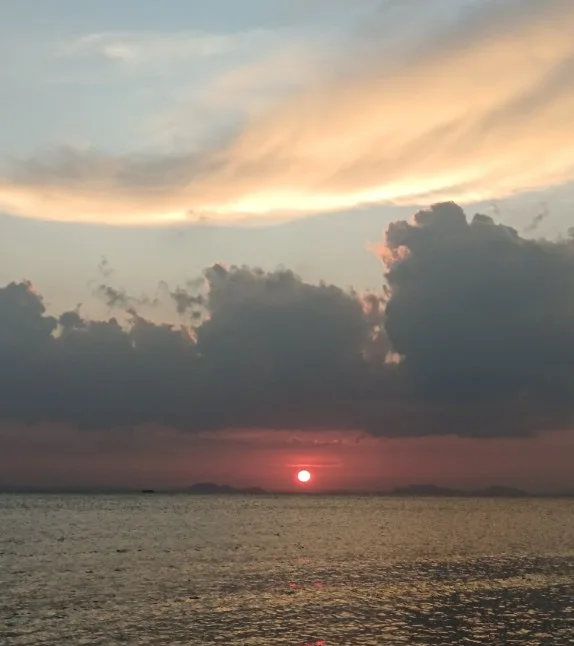
Image via farah
Nothing compares to how it feels watching the sunrise on my own, sometimes for two hours before work.
While others have to take annual leave and use up their bonus to go on an island holiday, I am paid to be here.
I wake up at a beach all to myself, I work on projects I’m passionate about, and I live a simple, peaceful life. What else do you need?
Even though there are challenges, I wouldn’t trade this experience for anything.
I don’t need to be rich or have a lot of money to have this kind of peaceful life.
It’s enough for me.
What do you think of this story?
Submit your opinion to ym.efillaerni@olleh and you may be featured on In Real Life Malaysia.
Also read: I Left Malaysia for Greener Pastures and Was Advised to Never Come Back. Here’s Why I Did.
I Left Malaysia for Greener Pastures and Was Advised to Never Come Back. Here’s Why I Did.
More from Real People
‘A RM100 fee cost a company 5 years of revenue’ shares M’sian
This story is about a Malaysian who learned that bureaucracy can be defeated simply by not arguing with it.A billing …
‘I quiet-quit, upskilled, and tripled my salary,’ shares M’sian engineer
This story is about a Malaysian who learned that loyalty without leverage leads nowhere in the corporate world.After years of …
‘I did everything right, and it still wasn’t enough’ shares M’sian graduate
This story is about a Malaysian graduate navigating big dreams in a job market where a degree no longer guarantees …















